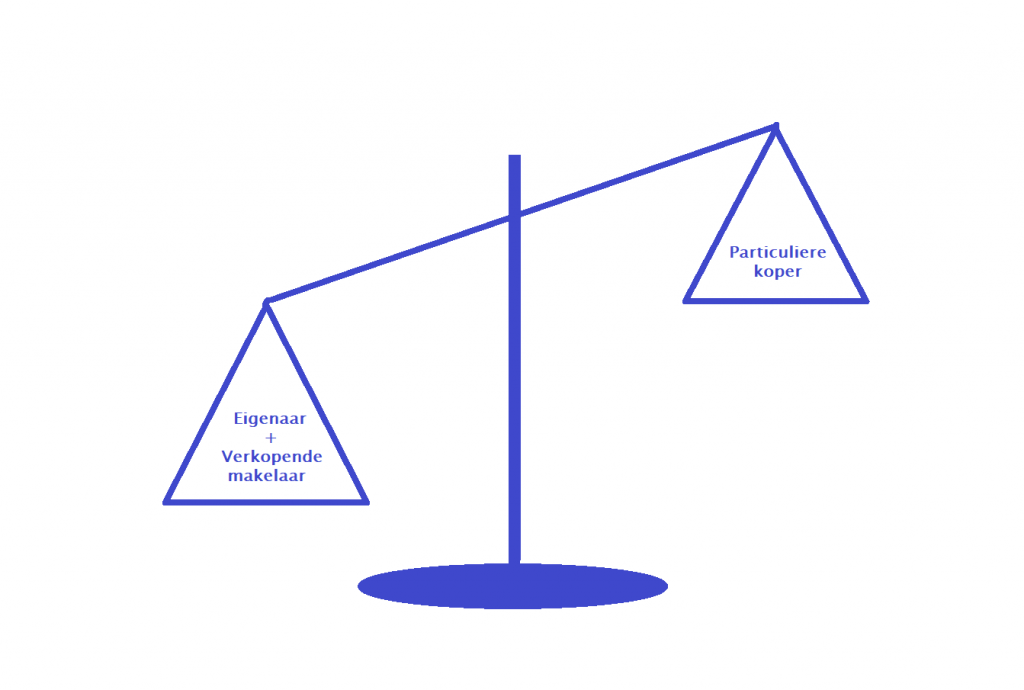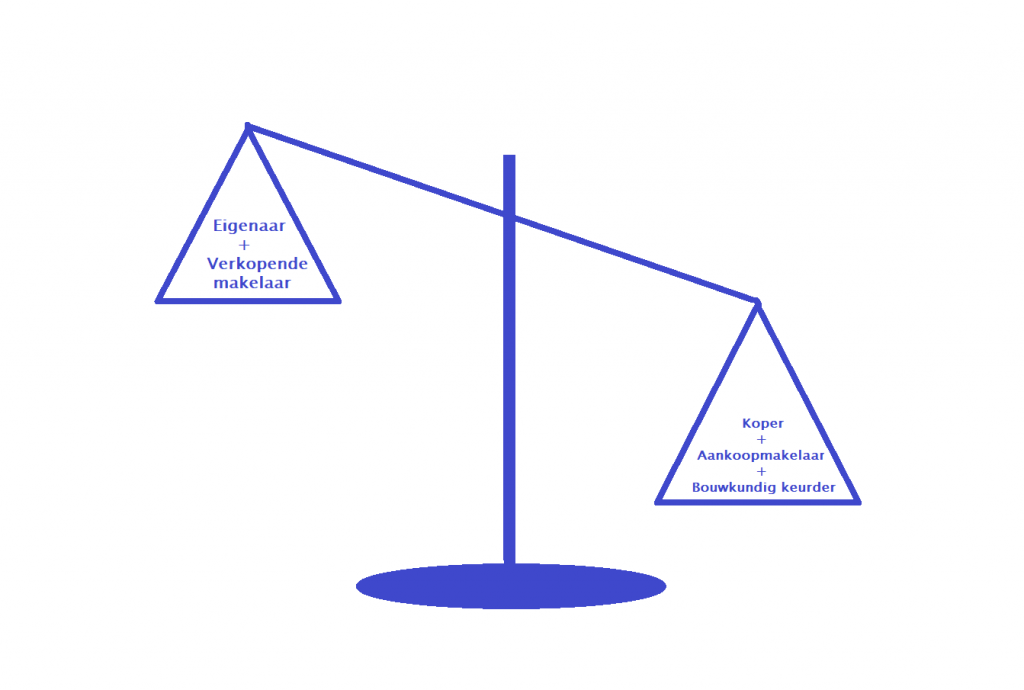It happens more and more often: bids on homes without a viewing have taken place. Are you as a house seeker doubting whether this is wise? Then here’s our short answer: No, it’s never wise. Unless you are a professional buyer (such as a property developer) and know exactly what you are doing. But in this blog we want to point out the risks of these types of bids to house sellers.
First of all: bids without viewings, we call ‘blind bids’.
There are several reasons why people do this. The most common are:
-People want to try to buy a house before the viewings take place in order to cut off the competition (other seekers).
-There were no more viewing options and people would still like to take a chance on the house.
-The offer is made by a real estate trader/real estate investor and this one also wants to cut the pace for other seekers & viewers.
Suppose you are selling your house and you receive an offer from people who have not yet seen your house. So is it wise to go into this?
It depends. If it is a bid from a non-professional buyer (anyone who does NOT buy it in the name of a company), we always advise against accepting such a bid. Below, we will explain why.
Chance of dissolution is too great
Suppose; you just got everything ready and lined up on Funda and you already have a whole lot of viewing appointments. Then someone comes up with a blind and good offer that you accept. Then you cancel all viewing appointments and you list the house as ‘Sold with reservation’ on Funda. This means that you miss out on a whole series of potential buyers who are canceled and also buyers who no longer request a viewing because the house on Funda is no longer available.
The private buyer who has just bought your house through a blind offer has at least 3 days to change his mind. Many blind bids are made on a whim. There is a reasonable chance that the buyer will change his mind after all. It is also often the case that people still want to see the house within the reflection period. People then pass by and it turns out that the house comes across differently in practice as they had imagined themselves on the basis of the Funda advertisement. Boom, and there’s the dissolution. You have no no right whatsoever, no right to compensation and you can start all over again.
Legal balance is skewed
The other reason to never do this is because you want the buyer to comply as much as possible with his legal obligation to investigate and you or your sales broker to comply as much as possible with his legal obligation to disclose. We will give you a simple explanation of what we mean by means of an example.
The keys will soon be handed over and within 2 days you will have received an overwhelming e-mail from the buyers. The windows are jammed, the kitchen cupboard does not close properly, the stair steps are loose. A crack has been found in the facade. The water on the flat roof does not drain. Buyers are bothered by the road noise. The kit in the bathroom is bad. And so on. To put it plainly: all whining. You are bound to encounter these kinds of problems if you sell your home to a private buyer without them having a viewing. As a seller, you are in a bad position for your legal liability in such a situation. You also want the buyer to be able to see all defects and/or to be informed about this. The balance of knowledge and research versus the disclosure obligation of the selling party then looks like this:

This is also how a judge sees this. As the owner, you know everything about the house and you have also been assisted by a professional (namely a sales broker). The ‘poor pathetic buyer’ could never have known about these flaws (after all, he had never seen the property) and you and your sales agent were in a much stronger position to inform the unwitting buyer about these matters.
It is therefore preferable that the buyer comes to view and is also assisted by a purchase broker. It is even better if the buyer also has the house architecturally inspected. If problems come to light later, then you as a seller are in a very strong legal position. After all, the buyer has been assisted in the purchase by 2 specialists (a purchase broker and a structural inspector). This really gave him every opportunity to research what he was going to buy. If it later transpires that a major defect is found of which the seller could not reasonably have been aware, a judge will be much more likely to choose the side of the seller. The balance of knowledge and research versus the disclosure obligation of the selling party then looks like this:

The professional buyer
When it can be interesting to sell your housee without a viewing is in the following situation.
– Your home is full of defects and/or is difficult to sell
– There appears to be very little to no enthusiasm for your home
-You have recently had an appraisal carried out.
-A very good offer comes in from the professional buyer without any conditions, a lot above the appraised value.
-The offer is without any conditions.
-You can cover yourself as much as possible in the purchase agreement for defects and/or other adverse matters/facts in or around the home without objection from the buyer.
In that case, it can certainly be interesting to sell the house via a blind offer. If you have paid close attention in this article, you may now ask yourself: But can the buyer not cancel the purchase within the legal reflection period?
The answer to this question is: no, dissolution is not possible. And that has to do with the fact that a professional buyer (i.e. a company) is not entitled to the statutory cooling-off period. In fact, the written requirement does not apply here either. This means that there is already an official sale without a purchase agreement having to be concluded. This means that you have sold the property immediately after accepting the offer.
summarizing
Never sell your home to a private buyer without a viewing. In some cases it can be wise when it comes to selling to a company.

